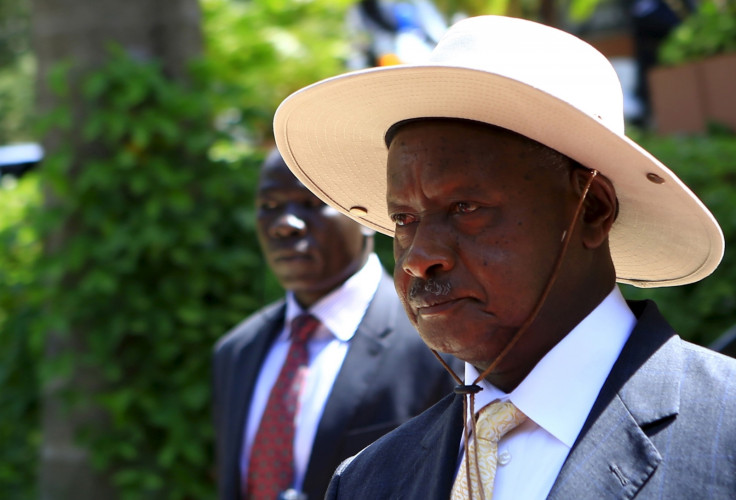Burundi: Opposition threatens to reject Ugandan President Yoweri Museveni peace proposals

A member of the Burundian opposition has threatened to reject any proposals made by the Ugandan president, who arrived in Burundi on 14 July for crisis election talks.
Yoweri Museveni's arrival comes days after President Pierre Nkurunziza announced Burundi's authorities would hold controversial presidential elections on 21 July, nine days after the five-nation East African Community (EAC) recommended the polls should be held.
Museveni, who was appointed mediator earlier in July by the EAC, arrived by road via Rwanda to push stalled talks between Nkurunziza's ruling CNDD-FDD party and opposition groups, representatives of the civil society and religious leaders, who are against the Burundi president's controversial bid for a third term.
Frederic Banvuginyunvira, vice-president of opposition party the Front for Democracy in Burundi (known by its French acronym Frodebu), told IBTimes UK the opposition could reject any proposals Museveni would make, claiming the veteran leader may have been "corrupted" during his trip down to Burundi's capital Bujumbura.
Opposition could reject Museveni
"When he came, he arrived from the north of the country by road and he was welcomed and accompanied by the Burundian authorities. For us, this means that it may have been the occasion to corrupt him by saying that all Burundian people want the elections and that peace is everywhere, but in reality this may have been a manipulation, another form of corruption," the politician said.
According to Banvuginyunvira, the government's stance "was repeated during yesterday's meeting". The Ugandan president, he claims, "repeated what the government told him" instead of taking into account what was put forward by the opposition parties.
He added: "So, for us, he didn't take into account what the opposition wants. Other members of the opposition will also reject him, because they say he is not taking into account their ideas and the content of previous summits."
Poll date a real issue
According to opposition leaders present at the meeting, Museveni failed to bring up the timing issue of the presidential polls.
"The government says elections will go ahead on the 21st [July], compared to the 30th [July], which is the date recommended by the EAC. He didn't mention that, which means he is letting the government do what they want," a source said.
For the opposition, Banvuginyunvira explained, a further issue resides in the fact that the latest EAC recommendations stated their preoccupation was to have Nkurunziza go forward with the elections – as long as they are conducted in a free and secure environment – and then integrate the different opposition parties that did not go to the elections in the country's institutions.
'Contradictory' recommendations
Museveni brought the issue up during talks on 14 July, sources present at the meeting told IBTimes UK, but a number of opposition leaders have slammed his recommendations.
"They are contradictory with what the EAC recommended," Banvuginyunvira said. While the East African leaders indicated that Burundi's constitution and Arusha Accords cannot be changed, forming government of national unity, as suggested by Museveni, would mean amending the constitution.
"If he continues in this manner, we will reject him. The opposition may withdraw and leave the government and the mediator let them to this on their own." Banvuginyunvira insisted. "Burundians are polite, so we will not make a fuss during the meeting but we will make our point during the plenary session".
The plenary meeting is expected to be held in the afternoon of Wednesday 15 July.
The Ugandan veteran politician, who has been in power since 1986, urged Burundi's leaders to strive for unity and welcomed the fact that arms "have been removed from the Imbonerakure (the youth wing of the CNDD-FDD)".
I urge the people of Burundi to forget their past sectarian political differences and build their country on unity. pic.twitter.com/5Q1Pa2pMPI
— Yoweri K Museveni (@KagutaMuseveni) July 15, 2015"The guns should be the monopoly of the state. And the state should be held accountable," Museveni said during an address before the talks. "The other wrong idea is that controlling the government is the most important thing."
Burundi up close: Check out our Flipboard magazine
© Copyright IBTimes 2025. All rights reserved.





















